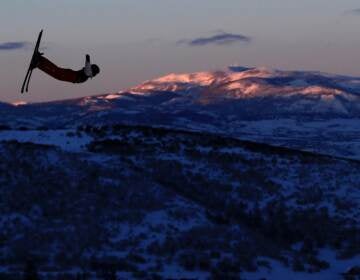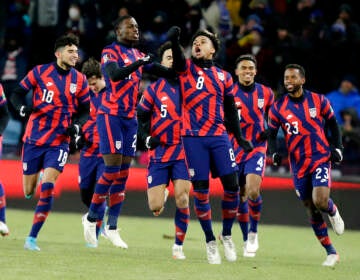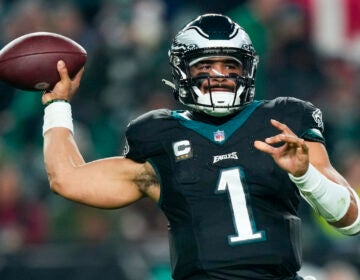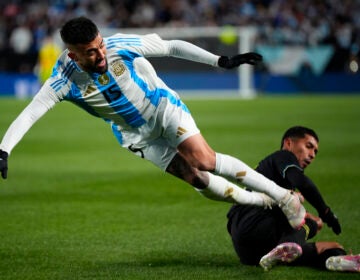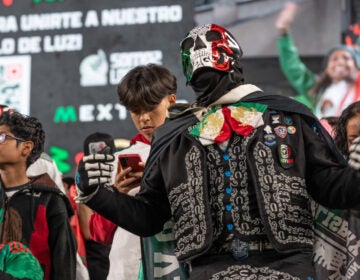Without NHL pros in the Olympics, USA Hockey turns to vets and newcomers with local ties
NHL players won’t play in the Olympics, but in their place, veterans and newcomers have stepped up to fill their place, some of whom have local ties.
Listen 1:37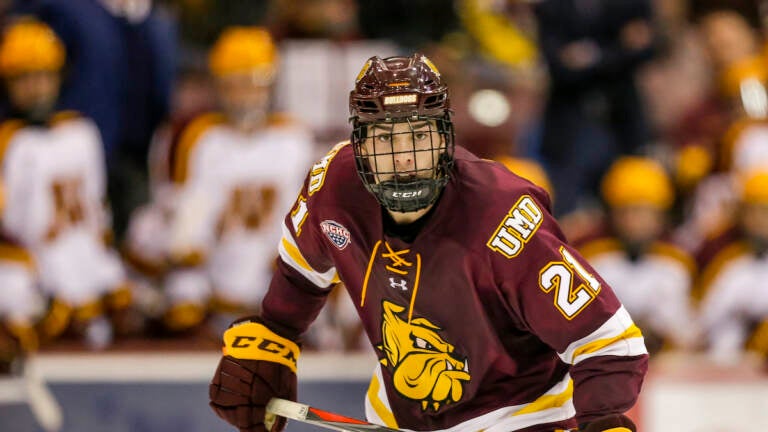
Minnesota Duluth forward Noah Cates skates against Minnesota during an NCAA hockey game on Friday, Oct. 25, 2019 in Minneapolis. (AP Photo/Andy Clayton-King)
When Noah Cates reflects on his fledgling hockey career, one word pervades in every one of his sentences: surreal.
The 22-year-old Stillwater, Minnesota native comes from a hockey family. His dad won a division three national championship in college playing for the Wisconsin-River Falls Falcons, and got Noah and his older brother hooked on hockey from a young age.
Cates said his childhood basement would quickly turn into a Stanley Cup Game 7 atmosphere whenever the brothers and their friends strapped on their roller blades.
For Noah, always the youngest of the group, the experience taught him how to hold his own against tough competition.
“Things would get heated, sometimes throwing sticks at each other,” Cates said, adding that the intensity was ultimately good-natured.
“Looking back on those days, we were working together and really starting to play hockey together,” he said. “They kind of pushed me and helped me kind of get to where I am just because they were older than me.”
Cates was drafted by the Flyers in 2017, when he was just 17. Since then, he’s been honing his skills as captain of the University of Minnesota-Duluth hockey team.
He hopes to join his older brother and college teammate, Jackson, who signed with the Flyers last year.
“From a young age, I wasn’t expecting to be in the NHL anytime soon. I knew it was going to be a process and take some time,” he said. “And the process has been obviously a blast. But I’m looking forward to getting to the NHL here pretty soon.”
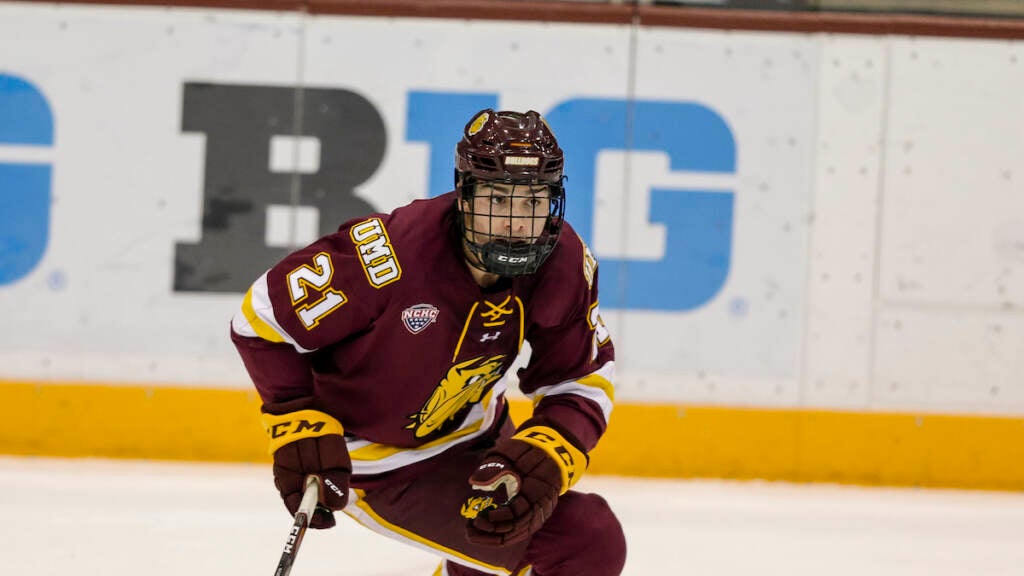
Noah Cates is one of 25 players named to the Team USA roster last month, after it was announced that NHL players won’t be competing in this year’s games. A COVID outbreak in December forced the league to postpone or reschedule 130 regular season games.
“The National Hockey League respects and admires the desire of NHL players to represent their countries and participate in a ‘best on best’ tournament,” NHL Commissioner Gary Bettman wrote in a statement. “Current circumstances have made it impossible for us to proceed despite everyone’s best efforts. We look forward to Olympic participation in 2026.”
In place of NHL pros, this year’s roster is filled with a fascinating mix of up-and-coming young prospects, and grizzled veterans looking for one more shot at gold.
Once the NHL pros were a no-go, Cates suspected he might get called up once John Vanbiesbrouck was named general manager of the team.
“He was my GM in 2019 with the World Junior team. So we’ve had a great relationship,” he said, reflecting on his time winning a silver medal with the team. “But once I got the call, it was super surreal. It was an awesome moment and awesome couple of days for my family and friends.”
Cates got the call just one month ago, and knowing he’s about to realize his Olympic dreams was “crazy to wrap [his] head around then, and still is.”
The grizzled vet, hungry for gold
Brian O’Neill, who grew up in Yardley in Bucks County, plays professionally in Finland for Jokerit of the Kontinental Hockey League (KHL).
This will be his second Olympics playing for Team USA. He was assigned to the team in 2018 after a contract dispute with the International Olympic Committee (IOC) about transportation and lodging costs kept NHL pros out of competition.
“Leading up to the 2018 Games, we all had a pretty good idea of the NHL players not participating,” he said. “So fast forward to December 2021, and it was kind of just thrown at us, a huge opportunity for the guys outside of the NHL.”
Even though he already has Olympic experience, he said “getting a call like that is something [he’ll] always remember.”
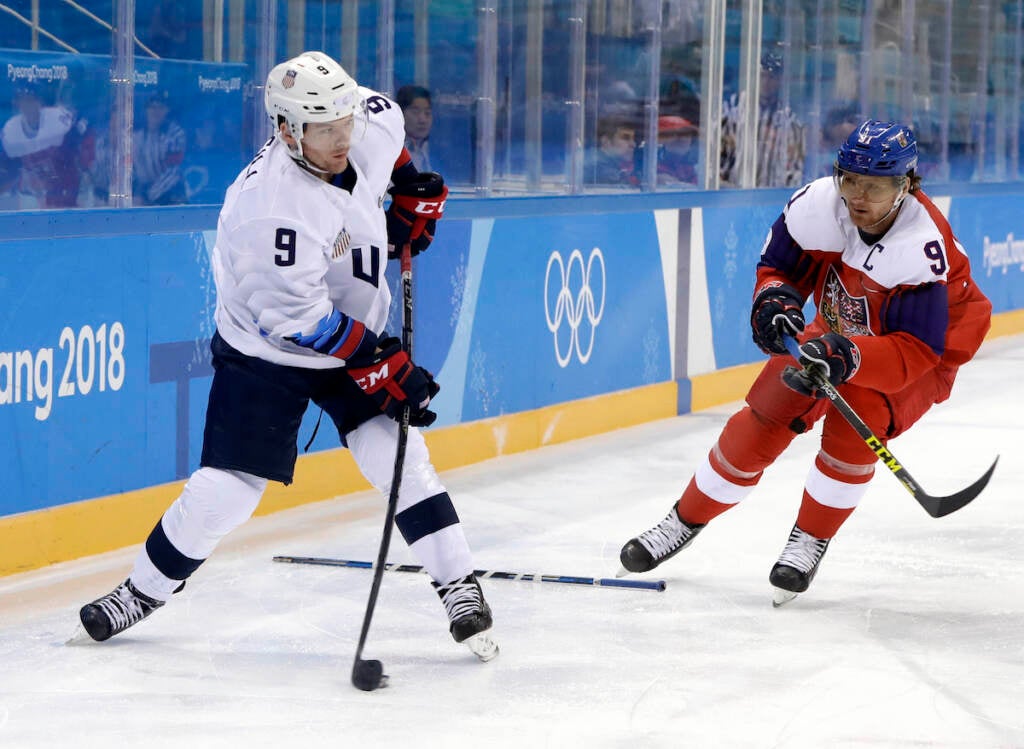
Growing up, O’Neill went to high school at Germantown Academy, and played for the Junior Flyers youth team.
His father got him into hockey, inspired by the Broad Street Bullies, who terrorized the NHL en route to winning back-to-back Stanley Cups.
“My dad was inspired by the ‘74-’75 Philadelphia Flyers and all the success they had, so that was pretty impactful on them deciding to get his kids involved in hockey,” he said. “I started taking hockey a little bit more seriously when I was 17. And then, you know, didn’t have a whole lot of success in getting colleges to help or make a commitment to me.”
O’Neill’s route to success was long and difficult.
After being scouted while playing for the Chicago Steel of the United States Hockey League, he played four years of hockey at Yale University, four years in the American Hockey League (AHL), and then one season for the New Jersey Devils in the NHL in 2015. He spent one year in the AHL before signing with the KHL, where he’s spent the last five seasons.
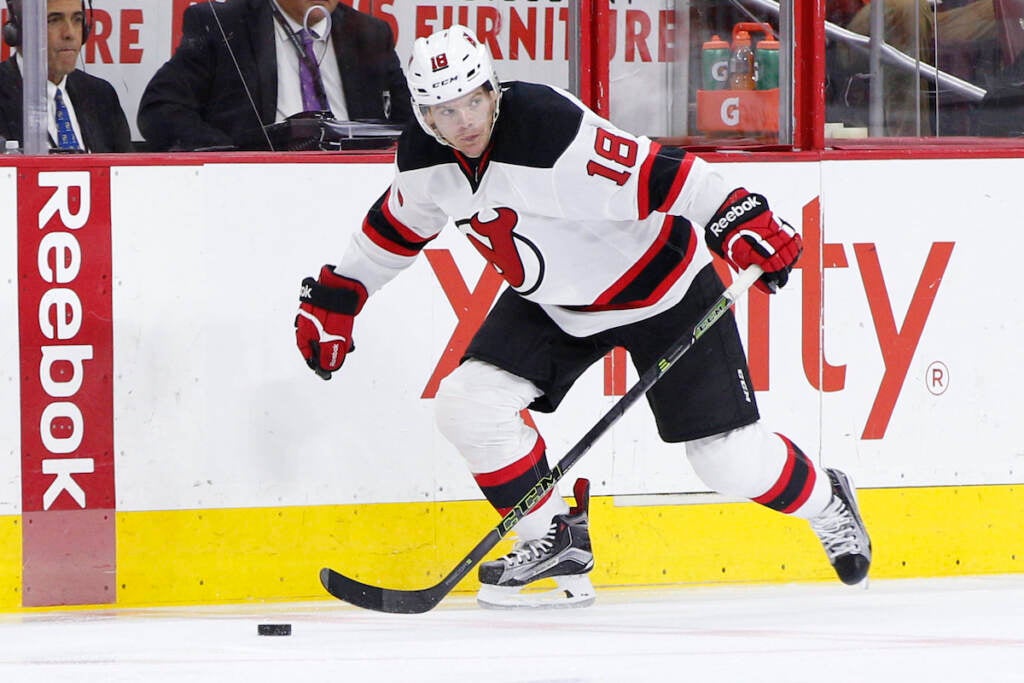
The 34-year-old forward said he’s fascinated by this year’s team dynamic, and expects the team to perform much better than in 2018, when they failed to medal and finished seventh.
“A lot of our team that are currently playing college, they have their whole pro career ahead of them. And then you have the older European pros like myself that don’t get a whole lot of press playing in Europe, especially in North America,” he said. “They’re really eager and hungry to prove themselves on the Olympic stage.”
Noah Cates agrees, and said he wants to use the Olympics as proof positive that college hockey players, often considered less skilled than their professional counterparts, can skate with the best of them.
“I really do think that college hockey is a very tough league,” he said. “I want to showcase how good college hockey is and prove that college guys are in a good league and that we can play together and play with some of the best in the world.”
COVID looms large in the background
So far, this year’s Olympics has not been spared from COVID infections, despite the IOC’s precautions.
Foreign spectators are barred and tickets are not on sale to the general public; COVID testing is carried out on a daily basis; face masks are required at all times. Anyone who tested positive is put into isolation, and can only return when they provide two negative test results within 24 hours.
Nevertheless, Olympic hockey players from Denmark and the Czech Republic have already tested positive for the virus while in Beijing, even before the Olympic torch is even lit.
O’Neill said he’s used to being regularly COVID tested, as is the protocol in the KHL. But the stakes around the games raise the pressure for him to stay COVID-free, as his last realistic chance for a gold medal approaches.
“It’ll be probably even a lot harder just because the testing will be more frequent and the consequences will be a lot bigger … I think the IOC has done a great job preparing us and making sure leading up to the games you’re as careful as possible,” he said. “I think if you can get to the games and be healthy and have a negative test result, the bubble or the closed loop in Beijing should be pretty solid.”
Cates believes the IOC has the situation under control.
“Once you get in and a credentialed athlete or staff member, you’ll be in a pretty tight bubble or loop,” he said. “But I think it’s very professionally ran and monitored by USA and the Olympics (officials).”
The USA men’s hockey team begins play on Feb. 10, with the gold medal game scheduled for Feb. 20.
WHYY is your source for fact-based, in-depth journalism and information. As a nonprofit organization, we rely on financial support from readers like you. Please give today.



